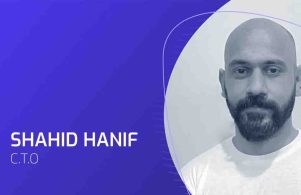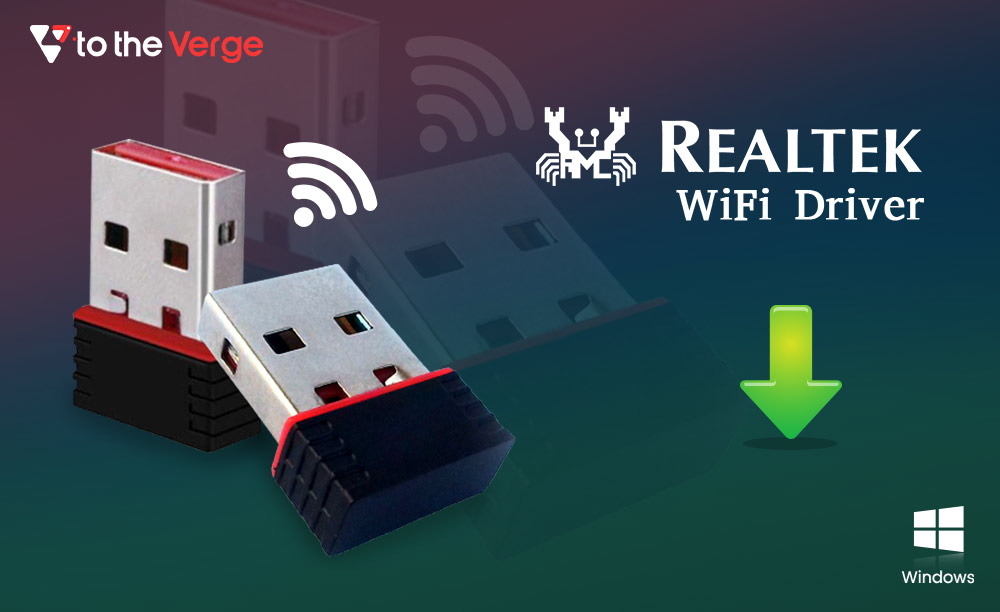“To the Verge” has an enlightening conversation with Alexander Bothe, Chief Technology Officer (CTO) at LeadLynx, a computer networking products organization, and Peertol, the first perfect combination of a peer-to-peer internet and a non-arbitrary cryptocurrency. He discussed immersive technologies’ impact on digital marketing and his ideas for metaverse and decentralization.
About LeadLynx
LeadLynx is a computer networking product organization that produces specialized tools, products, and software for companies who wish to scale marketing campaigns that were previously impossible to carry out.
“We started LeadLynx as an internal tool for ourselves after finding existing solutions too restrictive or ineffective. Now we make custom tools, products, and software for businesses that want to scale marketing campaigns that were previously unexecutable. No limitations. No compromises.”
“Our dream is to put the power of a digital marketing firm inside your computer. We are slowly turning this approach into a world-class product through our partners, investors, developers, marketing experts, and creative clients. This product will enable businesses to scale and automate any digital marketing campaign they can imagine.”
The organization uses advanced search functionality to target desired leads and wishes to change how the world does digital marketing.
Alexander’s Role As CTO At LeadLynx
Alexander explains his path to becoming a chief technology officer as a college student. He says, “At Washington University, I founded my first business with my roommate. That was a music startup using technology to improve the economics of the music industry. We rapidly understood that effective digital marketing was something we needed but could not afford. So, I created a Python script to automate the social media manager’s tasks. Due to our decision to change course, LeadLynx was founded.”
He explained the organization’s successful tenure of almost 2 years. Now, the teammates are focusing on building another organization named Peertol, the first perfect combination of peer-to-peer internet and a non-arbitrary cryptocurrency. He says, “We are creating a new network for web 3, and we are the first blockchain network to make an efficient internet system.”
Peertol – The First Metaverse-native Browser
Peertol, according to Alexander, is the first system that perfectly combines a peer-to-peer internet with PeerCash, a non-arbitrary cryptocurrency. He also described how the company chose its course in the digital era. He says, “I was skeptical about blockchain because of its commotion, particularly in the tech sector. I think that it is a bubble. Because I constructed a blockchain as a technical person, blockchains are not a particularly attractive technology outside of their decentralization role.”
Alexander believes that blockchain’s technical and physical data structures are neither fascinating nor intrinsically valuable. It has a lot of drawbacks. He says, “When you look at the definition of the bubble, the market overvalues something that does not have a real value to back it up.”
He describes how the idea of having a peer-to-peer network came along with their project. Although, the LeadLynx organization was a firm believer in blockchain. “The organization wanted me to build a metaverse for them. We started working on a cyborg city project when we thought about how blockchain could benefit. Therefore, he continued, we merged the blockchain to create a peer-to-peer network and had the mining evidence that gave the market its true worth,” he added.
Peertol adopted this notion. The firm prioritizes peer-to-peer networks above blockchain technology and utilizes blockchain to hybridize processes and make peer-to-peer commercially feasible.
Alexander thinks that because of the innovations the firm introduced, Peertol is not only superior to blockchain but also superior to conventional networks.
PeerCash
Peertol is the first perfect combination of a peer-to-peer internet and a non-arbitrary cryptocurrency, PeerCash. It’s distributed to network users according to the quantity of data storage, duration, and network size they provide to the Peertol network.
These “storers” are the Peertol version of a typical crypto “miner” however, instead of trying to solve complex equations to predict a 64-digit hexadecimal number, the Peertol storer selects the amount of storage they would want to allocate to the Peertol network. Then, after storing the data needed for the peer-to-peer internet, they receive PeerCash as compensation for their significant contribution.
Alexander shares, “Peertol was built with you in mind. We think anything the community can make free ought to be free.”
The Effects Of Web 3 And DAO On Marketing
Alexander finds the funnel in Web3 to be interesting. He thinks that the Web3 decentralized structure makes it fascinating. The network concentrates on the blockchain application, which differs significantly from e-commerce like Facebook advertisements, Google ads, and purchases.
He shares, “The decentralized Web’s objective is to get others to join your little group since, in the end, technology is created by the community. The focus is therefore placed on helping these people grow, providing them a share of the brand equity, and motivating them to believe in it. I’m not sure where technology stands, but there would be plenty of room for marketing and innovation.”
About Linkedin Automation Software And AI’s Role In It
Alexander shared that Linkedin Automation Software is all part of LeadLynx, and Artificial Intelligence (AI) plays a very significant role in it. In addition, he shared that LeadLynx is trying to record the response to the trend of digital marketing, which is shifting away from ads and blinking approaches and moving away to things with personalized connections.
Alexander believes that Artificial Intelligence (AI) plays a vital role in data gathering; nevertheless, sometimes, it is bizarre. He says, “It is not required in massive amount; therefore, LeadLynx allows individuals and organizations to create customized funnels and compile a list of people based on their target search. Artificial intelligence in LinkedIn Automation Software enables users to preconfigure a vast quantity of data by designing the same funnels for the enterprises.”
According to Alexander, Artificial Intelligence (AI) customizes users’ experiences based on their reviews. “For example, let’s focus on people with small businesses. If I want to sell business insurance to them, I will focus more on their reviews and responses, and with their different responses, I would construct different possible categories. Similarly, in Linkedin Automation Software, Artificial Intelligence (AI) automatically generates the responses in reviews in different categories in 5-10 minutes.”
The Foresight Of AI In Web 3
Alexander envisages that artificial intelligence (AI) will have a bright future in Web3. Peertol, an organization funded by venture groups, has a division of experts in machine learning. These people own many patents for the machine learning algorithms that everybody uses. He says, “With Peertol, a centralized peer-to-peer network, you are leveraging the computational resources of all the nodes together. And they’re integrating that technology at a low level with our network. This was stuck in my mind.”
He finds the concept fascinating because, with the decentralized peer-to-peer network and machine learning, you are leveraging the computational resources of all the nodes together.
He shares, “One of the things we’re working on is a concept of basically taking the workload of machine learning and distributing it in real-time across all the nodes in the network and then using the data that they’re generating and collecting in contingency with everybody else’s at the same time to create one model that spans the entire network that’s using the network’s generative data itself, like one neural net that is.”
“The marriage between decentralization and machine learning is probably one of the most incredible things in Web 3. “
His Vision For The Future Of Blockchain
Alexander believes there is tremendous hype behind the blockchain right now. People are throwing money at anything that has to do with the blockchain. “There’s a whole like a sub demographic of people obsessed with Web 3 and blockchain and all that stuff. But, in my opinion, blockchain itself is not a very impressive technology. It’s highly inefficient. The data structure doesn’t make a lot of sense.”
On the other hand, he also thinks these technologies may become crucial in the future as the market is untapped.
Alexander’s Views On How IT Industries Are Adapting Technologies Like DNETs, NFTs, and Metaverse:
Alexander shared that IT industries these days are trying to summarize these technologies compactly because they have a fair idea of how beneficial these technologies are. But, according to him, the metaverse is the next big thing, and nobody wants to miss the chance.
Everybody’s trying to find ways to use it. But, he says, “Everyone is looking for ways to use it; people are running into a reality where the technology is not that spectacular.
“It is a link list with hash codes, and that’s all. But, unfortunately, a link list is one of the least efficient data structures for most operations you wish to do on data, as every junior hire student can attest.”
Alexander believes that there may come a time when these technologies are of utmost significance.
Alexander’s Vision For The Metaverse
Alexander believes that the Metaverse is a very complex but exciting environment. He says, “But Unfortunately, I haven’t seen a 3D game component in it. The name metaverse has meta in it, but according to most individuals’ definitions, meta is losing its relevance.”
“It’s like there are two schools of thought in some circles about how humans will evolve as a species. One is about going outward and creating technologies, expanding and colonizing, and trying to become a universal power; the other includes people like monks and saints. They do the whole meditative practice. They discover the universe through themselves.”
Alexander says, “According to me, the metaverse is when people start taking an abstract representation of life, as serious as life, and engage with it in the way that they would engage with buying a house, right by the land, buy your house in the metaverse, it might cost as much as your house in real life. But, of course, that’s crazy because it’s just polygons. It’s just a picture on a screen. But that, to me, is what the metaverse is.”
According to him, the Metaverse is an overlay network that lets people go deeper into not themselves and not outward but into the computer space, which is interesting.
Conclusion
The conversation with Alexander Bothe offered us a fresh and original perspective on how blockchain can be beneficial. Nevertheless, according to him, there are some limitations, such as the data structure problem attached to this booming technology. Therefore, through Peertol and LeadLynx, the chief technical officer presently focuses on creating a peer-to-peer accessible internet to assist businesses with their distinctive digital marketing.
Alexander Bothe is the Chief Technology Officer (CTO) at LeadLynx, a Computer networking products organization, and Peertol, the first perfect combination of a peer-to-peer internet and a non-arbitrary cryptocurrency. He created LeadLynx when he was 20, after realizing that 99% of digital marketing was either wholly fraudulent or ineffective and expensive. He has expertise in Entrepreneurship, Technology Solutions, Digital Marketing, Programming, UI Experience, Algorithmic Innovation, Leadership Communication, and Data-Based Marketing.
Jyoti Rai is an enthusiastic writer who enjoys exploring new things. She is now working on writings about recent technical breakthroughs, particularly in the domains of Metaverse and future technologies. She may be found listening to music and reading poetry when she's not writing.







![How to Update and Reinstall Keyboard Drivers on Windows 10/11 [A Guide]](https://wpcontent.totheverge.com/totheverge/wp-content/uploads/2023/06/05062841/How-to-Update-and-Re-install-Keyyboard-Drivers-on-Windows-10.jpg)
